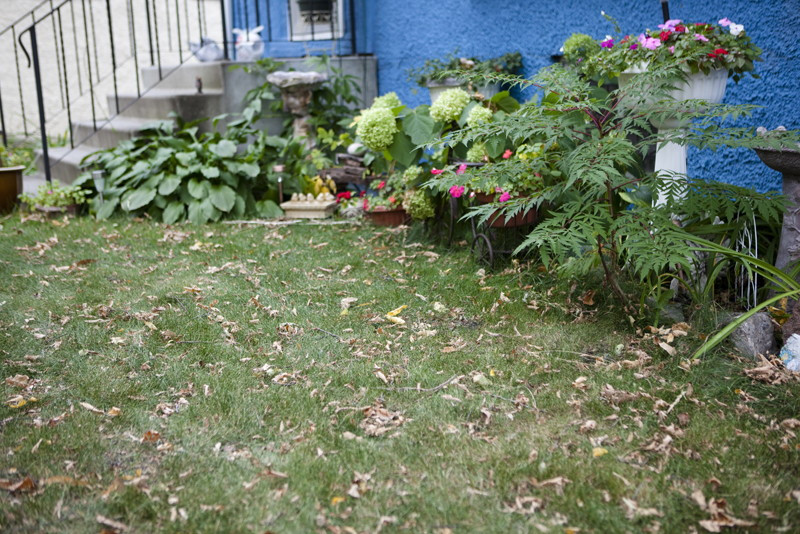Time to ban lawn chemicals
Cosmetic pesticides dangerous to the environment, human health
In Manitoba, we welcome spring each year with great enthusiasm — but amid the birdsong and blossoms lurks a distinctive and unpleasant odour.
Many citizens turn to the convenience of easily available weed killers or the local lawn care franchise to snuff out the inevitable dandelions that appear in May and June, and soon whole neighbourhoods are exuding the chemical compounds in weed control products.
Yucky as the smell is, it signals a much more sinister impact: potentially serious health issues for many in the population, and environmental effects for waterways, wildlife and beneficial insects.
Many asthma sufferers turn to greater use of their inhalant medicines during “lawn care” season.
“It’s hard to take a walk or cycle through treated areas, because it really triggers my asthma,” says South Osborne resident Steve Rauh.
Those with even more acute chemical sensitivities are often forced to remain indoors during spray episodes.
Young children on their way to school or daycare don’t have that option as they can’t avoid walking through or past chemically treated areas. This is a group that is particularly vulnerable to potentially harmful long-term impacts of chemicals, as are infants in utero.
The Ontario College of Family Physicians suggests that family practice doctors counsel their pregnant patients and their other children to avoid any unnecessary pesticide exposure.
The Canadian Cancer Society and the Lung Association both support bans on cosmetic pesticides.
When it comes to the appearance of lawns and gardens, avoidance of chemicals should be a no-brainer. Dandelions and other weeds are not dangerous and alternatives for healthy green spaces are readily available.
Cosmetic pesticides (which include herbicides, insecticides and fungicides) are unnecessary.
Other provinces, including Ontario and Quebec, have legislated against them, and yet the use and abuse of pesticides persists in Manitoba.
While some institutions like the Legislative grounds, the Winnipeg School Division and Clear Lake Golf Course have instituted their own alternatives to cosmetic pesticides, most citizens are awaiting action on the issue from the provincial government.
That body has finally created a window of opportunity by releasing a discussion paper, Play It Safe, which outlines possible options for managing the use of cosmetic pesticides in Manitoba.
The public comment period is open until Oct. 1.
Cosmetic Pesticide Ban Manitoba, a coalition that includes health and environmental advocates and professionals, urges Manitobans to support a comprehensive ban on all sales and use of cosmetic pesticides as a means to enhance the health and safety of Manitobans and our shared environment.
The coalition wants to see the government take a strong stance on this issue.
Coalition member Amanda Kinden has trained many Winnipeggers on the techniques of organic lawn care as the former organic lawn care educator at the Manitoba Eco-Network.
“It’s totally possible to have beautiful and healthy green spaces without using chemicals,” she says, pointing to simple techniques like leaving clippings on the lawn, top-dressing with compost and mowing high with sharp blades as key elements in healthy lawn care.
As may be expected, the chemical industry is vigorously opposing a ban, led by the umbrella group Croplife Canada whose members include Monsanto, manufacturer of Round Up, and Dow, maker of 2.4-D.
Croplife is undergoing a fear-mongering campaign claiming that property values will decline and that farm fields will be overrun with noxious invasive weeds if lawn and garden chemicals are banned.
However, neither scenario has played out in Ontario or Quebec, where green spaces and farms continue to thrive.
And lest one be swayed by industry assertions that local businesses will suffer, consider that in post-ban Ontario, organic landscaping has become a growth industry.
Dow and Monsanto and their colleagues are most concerned about the sales profiles of their toxic products.
Nevertheless, Manitoba’s conventional farm umbrella group, Keystone Agricultural Producers, and the Association of Manitoba Municipalities have adopted the industry propaganda.
These are powerful lobby groups, making their views known to members of the governing NDP, but Cosmetic Pesticide Ban Manitoba knows that the government needs to hear the personal stories of Manitobans about their experiences with lawn care chemicals, and why it should act now to protect water, wildlife, and people from unnecessary exposures.
People are encouraged to call their MLA, to write their own letters, and to endorse the coalition’s by going to www.cosmeticpesticidebanmb.wordpress.com and signing on.
Groups like Campaign for Pesticide Reduction have been working for years to convince governments to enact tough legislation and bylaws.
This is the best opportunity yet for action in Manitoba on this important health issue.
Anne Lindsey is a member of Cosmetic Pesticide Ban Manitoba. Contact the organization by email at [email protected] or find them on Facebook by searching Cosmetic Pesticide Ban Manitoba.
Published in Volume 67, Number 3 of The Uniter (September 19, 2012)







